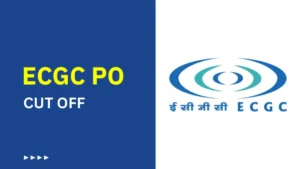Table of Contents
Banking exams have become increasingly popular among students from diverse academic backgrounds, including science graduates. While science students often explore technical roles, the stability and opportunities offered by the banking sector make it an appealing choice. Here are ten benefits of banking exams that attract science students:
10 Benefits of Banking Exams That Attract Science Students
The banking sector is a promising career avenue for science students, offering stability, growth and opportunities to apply their analytical skills. With increasing awareness about these benefits, the number of science graduates appearing for banking exams continues to rise. For those looking to transition into a secure and rewarding career, banking exams provide the perfect platform to achieve their professional aspirations.
01. Analytical Skill Utilization
Science students possess a natural inclination towards analytical thinking, a skill set that finds remarkable resonance in banking roles. The complex problem-solving techniques developed through scientific education – such as data interpretation, statistical analysis and logical reasoning – are directly transferable to banking examination challenges and subsequent job responsibilities. Mathematical skills honed during scientific training become powerful assets in financial analysis, risk assessment and strategic decision-making within banking environments.
02. Technological Integration
Modern banking is increasingly technology-driven, creating an ideal ecosystem for science graduates who are typically comfortable with technological innovations. Disciplines like computer science, electronics and information technology provide students with a technological foundation that seamlessly translates into banking’s digital transformation initiatives. Understanding complex technological systems, cybersecurity principles and digital infrastructure becomes a significant advantage for science students entering the banking sector.
03. Structured Career Progression
Banking examinations offer a transparent and merit-based career advancement framework. Unlike some sectors with opaque promotion mechanisms, banking provides clear pathways for professional growth through structured examinations, performance evaluations and systematic hierarchical progression. Science students appreciate this systematic approach, which mirrors the methodical nature of scientific research and academic advancement.
04. Competitive Compensation
Banking institutions offer competitive salary packages and comprehensive benefits that are increasingly attractive to science graduates. The financial stability, combined with opportunities for performance-linked bonuses and professional development, makes banking an economically compelling career choice. Moreover, public sector banks provide additional security and attractive retirement benefits.
05. Interdisciplinary Work Environment
Banking roles increasingly require multidisciplinary skills, creating an environment where scientific thinking and technical expertise are highly valued. Science graduates can leverage their unique problem-solving perspectives in areas like risk management, financial modelling, data analysis and technological innovation within banking ecosystems.
06. Research and Development Opportunities
Many banking institutions have dedicated research wings and innovation labs where scientific approaches are crucial. Science graduates can contribute to developing advanced financial technologies, predictive analytics models and innovative banking solutions, transforming traditional banking paradigms through scientific methodologies.
07. Career Prospects
Banking examinations open doors to international career opportunities. With globalized financial systems and increasing demand for technologically skilled professionals, science graduates can explore diverse roles across different geographical locations, bringing their specialized knowledge to complex global financial challenges.
08. Continuous Learning Environment
The banking sector demands continuous skill upgradation, resonating with the scientific community’s commitment to lifelong learning. Regular training programs, workshops and examination-based skill assessments ensure professionals remain updated with the latest technological and financial trends.
09. Social Impact and Financial Inclusion
Banking roles, especially in developing economies, play a crucial role in financial inclusion and economic development. Science graduates can contribute meaningfully to societal progress by developing innovative financial solutions, supporting rural banking initiatives and creating technological platforms that democratize financial access.
10. Holistic Skill Development
Banking examinations test and develop a comprehensive skill set beyond pure technical knowledge. Communication skills, psychological understanding, ethical decision-making and strategic thinking are equally emphasized, providing science students with a holistic professional development platform.
Banking examinations represent far more than a traditional career pathway. They offer science students a dynamic, intellectually stimulating and socially impactful professional journey that celebrates analytical thinking, technological innovation and continuous personal growth.




 GA Capsule for SBI Clerk Mains 2025, Dow...
GA Capsule for SBI Clerk Mains 2025, Dow...
 The Hindu Review October 2022: Download ...
The Hindu Review October 2022: Download ...
 ECGC PO Cut off 2025 Out, Check Final Cu...
ECGC PO Cut off 2025 Out, Check Final Cu...



